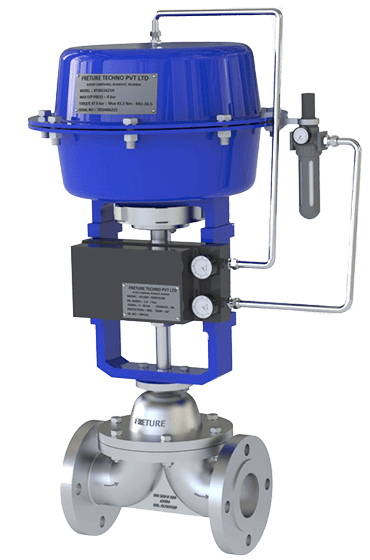Diaphragm valves are a crucial component in various industrial processes, offering a reliable and efficient method for controlling fluid flow. Their unique design, featuring a flexible diaphragm that regulates flow by opening or closing against a seat, makes them an ideal choice for industries requiring high-purity, corrosion resistance, and leak-proof operation. This article explores the key advantages of diaphragm valves and why they are widely used across multiple industries.
1. Superior Leak-Tight Performance
One of the most significant advantages of diaphragm valves is their exceptional sealing capability. Unlike conventional valve types that rely on multiple moving parts to regulate flow, diaphragm valves create a tight seal between the diaphragm and the valve seat, preventing leaks. This feature is particularly beneficial in industries such as pharmaceuticals, food processing, and chemical manufacturing, where contamination control is critical.
2. Excellent Corrosion and Chemical Resistance
Diaphragm valves are available in a variety of materials, including PTFE, EPDM, and rubber, allowing them to handle aggressive chemicals and corrosive fluids. Their ability to withstand harsh environments makes them a preferred choice in the chemical, water treatment, and mining industries. Additionally, the valve body can be constructed from stainless steel, plastic, or other corrosion-resistant materials to enhance durability.
3. Hygienic and Sterile Design
For industries that require sterile fluid handling, such as pharmaceuticals and biotechnology, diaphragm valves offer a contamination-free solution. The design eliminates cavities and dead spaces where bacteria or residue could accumulate, ensuring compliance with stringent hygiene standards. Many diaphragm valves are also designed to withstand clean-in-place (CIP) and sterilize-in-place (SIP) procedures, making them ideal for sanitary applications.
4. Precise Flow Control
Diaphragm valves provide excellent throttling and flow control capabilities. Their linear flow characteristics allow operators to achieve precise regulation of fluid flow, making them suitable for applications requiring high accuracy. This feature is essential in water treatment plants, chemical dosing systems, and laboratory processes where maintaining consistent flow rates is critical.
5. Minimal Maintenance Requirements
Compared to other types of valves, diaphragm valves have fewer moving parts, which reduces wear and tear. The simple design means fewer components are subject to failure, resulting in lower maintenance costs and extended service life. Additionally, the ease of replacing diaphragms without dismantling the entire valve minimizes downtime and enhances operational efficiency.
6. Versatility in Application
Diaphragm valves are suitable for a wide range of applications, from high-purity fluid control to handling slurries and viscous media. Their adaptability to different pressure and temperature conditions makes them a preferred choice in industries such as food and beverage, water treatment, semiconductor manufacturing, and chemical processing.
7. Energy-Efficient Operation
Due to their lightweight and streamlined design, diaphragm valves require less force to operate compared to other valve types. This translates into lower energy consumption, particularly in automated systems where frequent valve operation is required. Pneumatic and electric actuators can efficiently control diaphragm valves, further optimizing energy use in industrial processes.
8. No External Leakage
The diaphragm in these valves acts as a barrier between the fluid and the external environment, eliminating the risk of leaks. This is especially advantageous when dealing with hazardous or toxic substances, as it ensures operator safety and prevents environmental contamination. Industries handling acids, gases, and volatile chemicals greatly benefit from this leak-proof design.
9. Compliance with Industry Standards
Diaphragm valves are designed to meet various industry standards, including FDA, USP, and ISO certifications. Their compliance with global regulatory requirements ensures they can be used in critical applications without compromising safety, quality, or performance. This makes them a go-to choice for manufacturers needing reliable and certified flow control solutions.
Diaphragm valves offer numerous advantages, including superior sealing performance, corrosion resistance, hygienic design, precise flow control, and minimal maintenance requirements. Their versatility and efficiency make them an indispensable component in industries ranging from pharmaceuticals and food processing to water treatment and chemical manufacturing. As industrial demands continue to evolve, diaphragm valves remain a reliable and effective solution for fluid control applications.

No comments:
Post a Comment